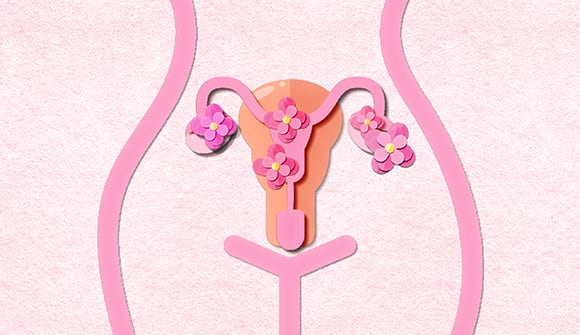When a pregnancy ends
Shining a light on the tough topic of miscarriage.
Article Author: Beth Stambaugh
Article Date:

In April, Hilaria Baldwin, wife of actor Alec Baldwin, shared painful news on Instagram that she was having a miscarriage. It isn’t something most women talk about publicly, and it prompted news stories about this difficult topic.
Baldwin’s story is one many women can relate to. About 10 to 15% of pregnancies end in miscarriage among women who know they’re pregnant. That number rises to 40% if you include those who did not know they were pregnant yet.
“It happens a lot more frequently than people think,” said Kendra Gillespie, MD, an OB/GYN who delivers at Baptist South Baptist Medical Center Jacksonville. “Most miscarriages occur in the first trimester and are caused by a genetic abnormality that would make survival impossible.”
But the numbers and facts don’t assuage the feelings of profound loss. On top of that, many women experience shame and guilt, thinking they may have done something to cause the miscarriage.
“Some women think it’s something they did to cause the miscarriage – anything from exercise to having sex. I emphasize that it is not their fault. About half of all miscarriages happen due to chromosomal issues that no one can control,” Dr. Gillespie said.
Chromosomal abnormalities can lead to a blighted ovum, where the embryo doesn’t form or result in an embryo or fetus with no heartbeat. A phenomenon called molar pregnancy can also occur where chromosomal imbalances can lead to abnormal placental tissue, and a fetus may or may not develop.
Other reasons for miscarriage include:
- A weakened cervix, in which the cervical muscles are too weak to hold the fetus. This can lead to a miscarriage in the second trimester.
- Anti-phospholipid syndrome, a condition where the immune system mistakenly attacks tissue and cells in the body
- Long-term health conditions such as uncontrolled diabetes, thyroid disease or high blood pressure
- Infections such as chlamydia or syphilis can lead to pelvic inflammatory disease, commonly knowns as PID. This cause lead to an ectopic (outside of the uterus) pregnancy.
- Uterus abnormalities such as a uterine septum in which the uterus is partitioned into two compartments
- Food poisoning. Consuming contaminated foods can sometimes lead to miscarriage
There are some factors within your control that may reduce your chances. “Being healthy before you get pregnant reduces your risk factors,” Dr. Gillespie said. “All of those things you know you need to do – maintaining a healthy weight, exercising, not smoking and limiting alcohol are all very important.”
Age, unfortunately, may play a role, too. “As you get older, your risk of early miscarriage increases,” Dr. Gillespie said. At 35, the chance is about 20%; by 40 it goes up to 40%.
Dr. Gillespie recommends having a preconception appointment with your OB/GYN to get all of your questions answered, go over your medical history and talk about lifestyle factors that could affect your ability to get and remain pregnant. A physical exam, along with a pelvic exam and a Pap smear are usually part of the visit.
Physical healing after miscarriage
There are differing opinions among OBs about when it’s safe to try to become pregnant again. Some doctors feel it is safe to begin trying again after the first normal menstrual cycle if they’ve had an early miscarriage without complications. Others recommend waiting up to six months if it occurred after the first trimester. It’s best to check with your doctor to make the best decision for you.
“Though the risk of having another miscarriage increases after the first, it is uncommon for it to occur repeatedly,” said Dr. Gillespie. “Most women go on to have normal pregnancies after a miscarriage.”
Emotional healing after miscarriage
“The physical healing from a miscarriage can sometimes be easier than the emotional healing,” said Julia Garrett, PsyD, a psychologist with Baptist Behavioral Health who counsels women after they’ve had a miscarriage. “I tell my patients to take the time necessary to grieve the loss. No matter how far along the pregnancy, it is a significant loss.”
Some people prefer to grieve by talking to a friend or relative, while others seek out grief counseling from a therapist or clergy person. Others find support groups where they can share feelings among other women in the same situation. “Recognizing you’re not alone in this experience can help reframe it,” Dr. Garrett said.
Dr. Garrett provides patients with healthy ways to cope with the loss, such as engaging in active self-care. “Set a goal to do something for yourself every day while you are going through the healing process. This can be taking time to read a book, exercise or meditate – any healthy activity where you are being kind to yourself.”
What to say or do
Despite the prevalence of miscarriage, it’s not something people usually talk about. “There’s a cultural silence when it comes to miscarriage, which adds to a woman’s feelings of loneliness and isolation,” said Dr. Garrett.
“Don’t feel as if you have to avoid talking to the person about their loss. If you’re comfortable, feel free to express your sorrow for their loss and then follow their lead – allowing them to talk if they like, or if you get the sense they’d rather not talk, you can offer support,” she said.
Some ideas Dr. Garrett recommends include offering to help with routine chores, like folding laundry, cooking a meal, or watching kids. Even better, go ahead and provide an act of kindness -- like dropping off a meal – rather than asking, because many times people don’t ask for help even when they need it.
Dr. Garrett said that some couples like to have a tangible way to remember their child, through activities like journaling, planting a memorial tree or creating a keepsake.
“There’s not a right way or wrong way; the most important thing is to work through the feelings and give yourself the time you need,” she said.
If you’d like to talk to a therapist about miscarriage or other issues, call Baptist Behavioral Health at 904.376.3800. If you’re looking for an OB/GYN to help you manage your gynecologic health, call 904.202.4HER.



